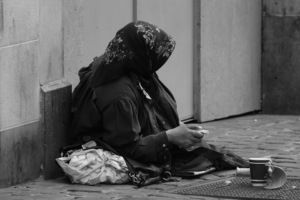News
Fewer foreign beggars coming to Denmark
This article is more than 7 years old.
Recent begging law seems to be having an impact

Moving on: foreign beggars fleeing Denmark (photo: Pixabay)
The Danish government’s decision to get tough on begging last year seems to have had the desired effect.
Despite there not being any official figures available, Copenhagen Municipality estimates that fewer beggars from abroad are making their way to the Danish capital.
“When we talk to those who are here, they say being in Copenhagen has become too difficult. Therefore, some of their countrymen have typically moved on to other countries,” Steen Bo Pedersen, the head of the homeless unit in the city, told DR Nyheder.
“They can’t sleep on the streets or beg with their cups at Nørreport Station for a day, so now they’re heading to other destinations.”
READ MORE: Beggars can’t be choosers – especially if they are non-Danes
Decisive and discriminatory?
It’s been illegal to beg in Denmark since 1860, but the recent law change means that anyone caught could face an immediate two-week period of imprisonment, with no necessity for the police to give them a preliminary warning. The police were also given the green light to clear illegal camps.
A report from last month showed that all 52 people sentenced under the new law were foreigners – the vast majority hailing from eastern Europe.
Aid organisations contend the development proves that the law is discriminatory.










































